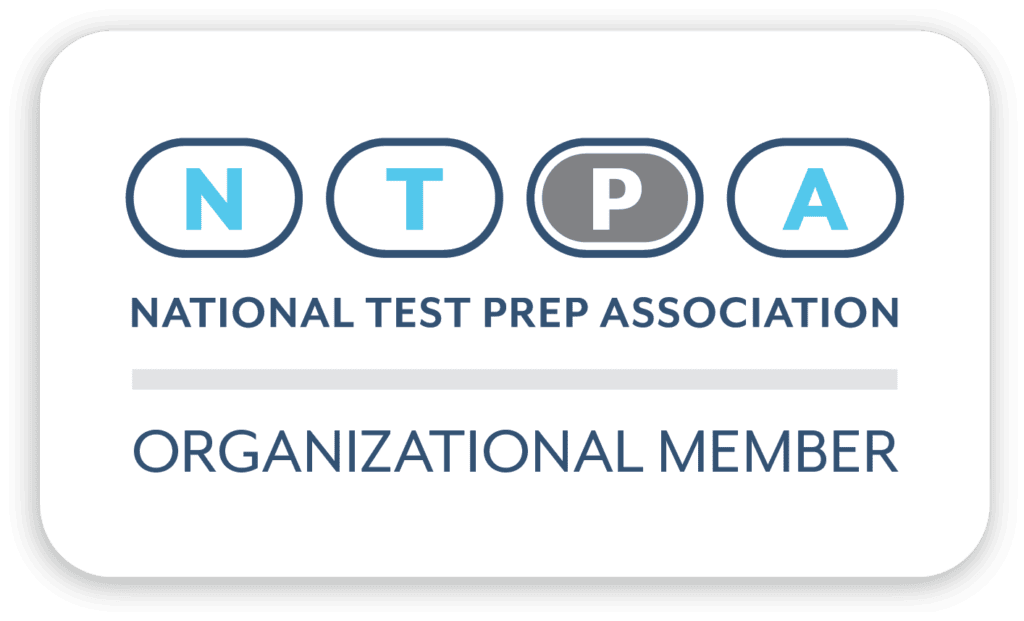College admissions testing comes in the midst of an important transition in teenagers’ lives. They are gaining autonomy and independence, but they are still in high school, and they are still learning how to manage simultaneous complex commitments. For many students, the process of preparing for the SAT is one of the first major projects for which they can truly own full responsibility.
It can be difficult for a parent to know how to best be supportive when their student is preparing for a major admissions test. How can a parent navigate the tension between their student’s growing independence and their parental desire to ensure that their student achieves their best possible outcome? Every student-parent dynamic is different, but there’s one thing that every parent we talk to about testing has in common: they simply want what’s best for their student. This often means balancing the desire to be as supportive as possible with the need for their student to have room to grow. Here are some approaches to use as a starting point:
Ensure that your student has a voice when it comes to choosing which test to take.
Taking a diagnostic test of both the SAT and ACT is the first step towards choosing between the two tests. The results help us to make a data-driven decision about which test to take. However, it’s important that each student is on board with their plan and agrees that we are choosing the test that is the best fit for them. Test selection is a great opportunity to demonstrate your trust in your student’s ability to make good decisions. When you give them a say in this process, they begin to recognize their autonomy and become more likely to take ownership over the process. After all, the student is the one who has to take the test, and this fork in the road is a great time for the student to start to feel a sense of control.
Create infrastructure that helps your student to be successful.
A good place to start is by asking your student what they need in order to be successful. Help them to plan ahead to make sure they have time set aside to complete their work. Make sure that they have a space to work that minimizes distractions, ask if they have snacks or water when they’re sitting down to do their work. If you’re working with a tutor at Open Door, read the session summaries each week to stay in the loop. If there are important issues that come up along the way, your student’s tutor will make you aware, and those are great opportunities for open ended questions.
Help your student plan to complete their homework, but know when to give them space.
Most students who are doing test prep already have a lot of other things on their plates, and, as you can imagine, SAT homework is a common casualty of procrastination. If you think your student needs a nudge to get their homework done, ask well in advance when they plan to do it. It’s ideal for a student to spread out their work between tutoring sessions so that they aren’t rushing to do it at the last minute. Volunteer to help them identify times when they will plan to complete their work, and ask if it’s useful for you to remind them. If they resist this support, give them the space to succeed on their own. If they then struggle to complete their work, it’s time to return to the conversation and take a harder line about when and how the student will do their work, but students should first have the chance to be independently successful before they are compelled to abide by a strict schedule and oversight. If you’re working with a tutor at Open Door, they will let you know if your student isn’t getting their work done, and they can provide suggestions based on what they are seeing in their sessions.
Ask open-ended questions that help your student to be reflective about their work.
In general, if you want to have a conversation with your student about how their test prep is going, ask them what they feel like they’re getting better at, if there have been surprises, or if they noticed anything interesting in their work. For many students, just knowing that you’re rooting for them and you believe in them is enough, and thus confidence in your support will make it easier for them to ask you for help if they need it.
Be aware of language that conveys a fixed mindset.
There’s an important difference between saying “Tina is bad at tests” and “some tests have been difficult for Tina in the past”. When we use language that focuses on the test and the testing experience, we open up more space to understand why tests have been difficult for Tina while also communicating that the difficulty Tina has with testing is not permanent. One of the most important components of supporting your student is communicating to them that you believe in their ability to improve. The SAT and ACT are fantastic opportunities for a student to learn that if they put in the time and effort they can improve the quality of their results.
Celebrate progress.
Many students already have a sense of what their score goals are, and these goals are often informed by what they hear from their peers. These goals may be far from a student’s starting scores, and so it is important to set incremental goals so that a student achieves small victories that can cumulatively add up to the big win of reaching their target scores. When you talk with your student about scores, focus on the progress they are making, providing positive feedback for the work they are putting in and the incremental goals they are achieving.
Remember that your student is growing and sometimes what they need most is time.
There are many students who are attempting to prepare for and take the SAT early so that they can “get it over with“. However, there is a reality to the fact that high school students are in the throes of a crucial stage of brain development, and they will likely be wiser and more mature during the fall leading into their senior year than were as juniors. Many rising seniors are also more invested in the process because they are closer to actually applying to college and may feel that they are working towards a meaningful and immediate outcome, which can help light a fire under them. A combination of maturity and investment helps many students to earn their best scores in the late summer or fall of their senior year.
It is still a good idea to have your student begin thinking about their testing early so that it doesn’t hang over their heads and they know what to expect. At the same time, it’s important to recognize that your student is growing over the course of this process and that has significant implications for their results. This may mean that a student needs more support, like reminders to do their homework thoughtfully, in their junior year, but if they retest as a senior, they may simply need to know that you believe in them and are rooting for them every step of the way.






